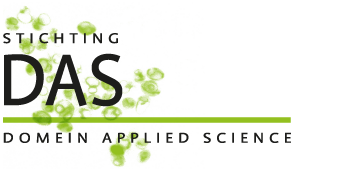|
|
Level I
|
Level II
|
Level III
|
Level IV
|
|
|
The student
performs simple research in
response to a problem statement and setup provided.
The student demonstrates this by:
|
The student
makes a major contribution to
a research strategy provided
and conducts the research.
The student demonstrates this by:
|
The student
translates a problem provided
into a research strategy and
conducts the research.
The student demonstrates this by:
|
Experienced professional
(see description of competence above).
The professional demonstrates this by:
|
|
A | Setting an
objective for
the research
assignment
|
Communicate substantively with the client about the problem and the objective of the research.
|
Analyzing a problem in consultation and coordination and translating it into the objectives of the research assignment.
|
Independently analyze a presented problem and translate it into the objective of the research assignment.
|
Independently analyze a problem and translate it into the objective of the research assignment.
|
|
B | Using literature
or sources
|
Gaining insight into the professional aspects of the research by studying the literature or sources provided.
|
Gaining insight into the problem and the professional aspects of the research by studying literature or sources of your own choice.
|
Selecting and obtaining, without assistance, scientific and
other literature or sources in
order to study the problem in
greater depth, thereby validating the reliability of the different sources of information.
|
Selecting and obtaining, without assistance, scientific and
other literature and/or sources
in order to study the problem
in full depth, thereby validating the reliability of the different sources of information.
|
|
C | Determining the
research design
|
Explaining the relationship
between the research question provided, sub-questions
and research activities.
|
Formulating, under supervision, sub-questions and
research activities regarding
the research to be carried out.
|
Formulating, without assistance, sub-questions and
research activities regarding
the research to be carried out.
|
Formulating, without assistance, sub-questions and
research activities regarding
the research to be carried out.
|
|
D | Drawing up
a work plan for
research
|
Developing an approach to
carrying out the research
activities of a simple research
assignment according to a
format provided, including the
planning of the work.
|
Preparing a work plan in
consultation, drawing up the
plan independently, taking
account of any preconditions.
|
Preparing a work plan without
assistance, taking into account
the interdependencies of
various research activities and
preconditions.
|
Methodically drawing up a
work plan, allowing time for
evaluation and adjustment
and taking account of preconditions and uncertainties.
|
|
E | Carrying out the
research activities
and obtaining the
research results
|
Working in accordance with
the work plan when carrying
out the assignment and finding effective ways of achieving
the intended results. Applying
basic knowledge or skills.
|
Working in accordance with
the work plan when carrying
out the assignment. Implementing the work plan
effectively and efficiently and
determining whether interim
adjustments are necessary on
the basis of interim results.
Applying relevant knowledge
or skills.
|
Implementing a complex work
plan effectively and efficiently
and updating it as necessary
in between times. Acquiring
relevant knowledge and putting it into practice.
|
Implementing a complex work
plan effectively and efficiently
and working with dynamic
scheduling as necessary.
Acquiring relevant knowledge
and putting it into practice.
|
|
F | Processing and
checking data
|
Summarising the data from
the research activities,
structuring it in the light of
the research question and
presenting it clearly. Reflecting critically on the results to
determine whether they are
realistic.
|
Summarising and interpreting
the full or partial results in
relation to the assignment/
research question. Critically
reflecting on the reliability of
the results.
|
Logically and clearly combining the full or partial results
and interpreting them in relation to the research question.
Performing an analysis of the
reliability of the results.
|
Summarising, structuring and
interpreting the results in relation to the research question.
Ensuring that the results are
reliable.
|
|
G | Formulating
research conclusions and
recommendations
|
Using the research results to
formulate conclusions relating to the research question
and if necessary submitting
a proposal for improving the
implementation of the assignment/the research.
|
Using the research results to
formulate conclusions relating
to the research question and
using these to make a proposal for follow-up steps.
|
Using the research results
to formulate and interpret
conclusions relating to the
research question. Making
proposals for follow-up
research based on the
conclusions.
|
Making proposals for followup research based on the conclusions and other insights.
|
|
H | Reporting
|
Reporting orally and/or in
writing on the assignment
in accordance with specified
guidelines.
|
Combining the results into
one report in accordance with
the applicable guidelines/
standard.
|
Reporting on the research in
accordance with the standard
applicable in the professional
field.
|
Reporting on the results of the
research in accordance with
the standard applicable/valid
in the professional field.
|
|
I | Cooperation and
communication
|
Actively working as part of a
team, processing the feedback
on the work delivered to
achieve better results. Being
able to communicate concisely about goals and results
as the work progresses.
|
Acting as a full team member
in the student's working
environment, where feedback
and reflection lead to better
results, reasoned choices and
effective coordination in conducting the research. Being
able to match communication
on progress to the situation.
|
Acting as a full member and
working as part of a team
which also contains staff from
other professional field(s).
Communicating independently
about the relevant substantive
aspects of the progress.
|
Collaborating in a resultoriented way in a multidisciplinary setting. Communicating
and reporting effectively on
progress and coordination.
|
